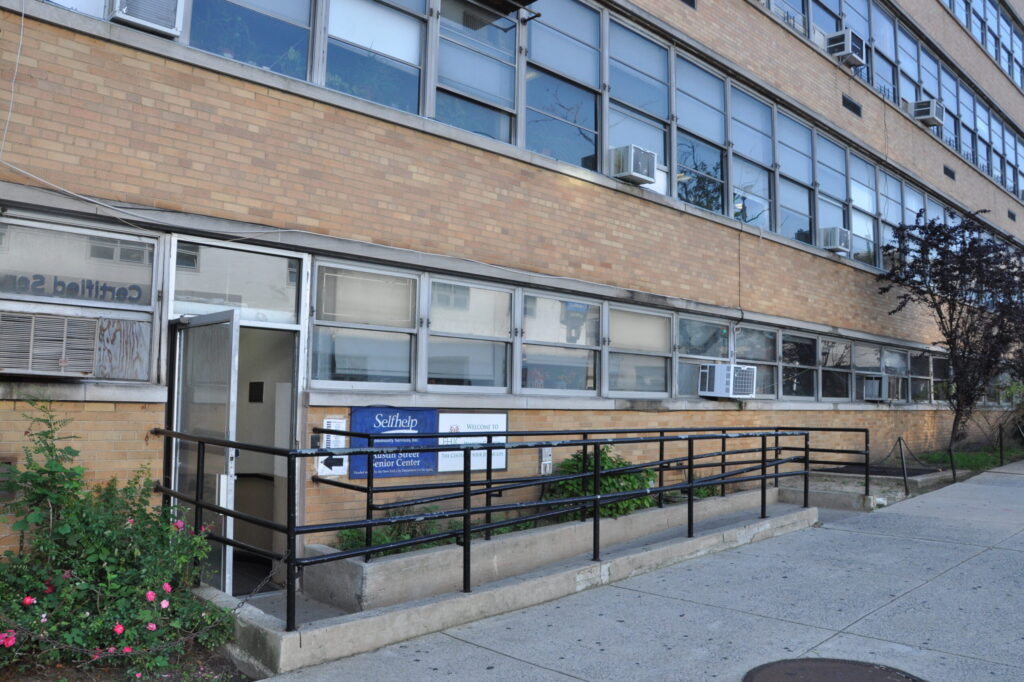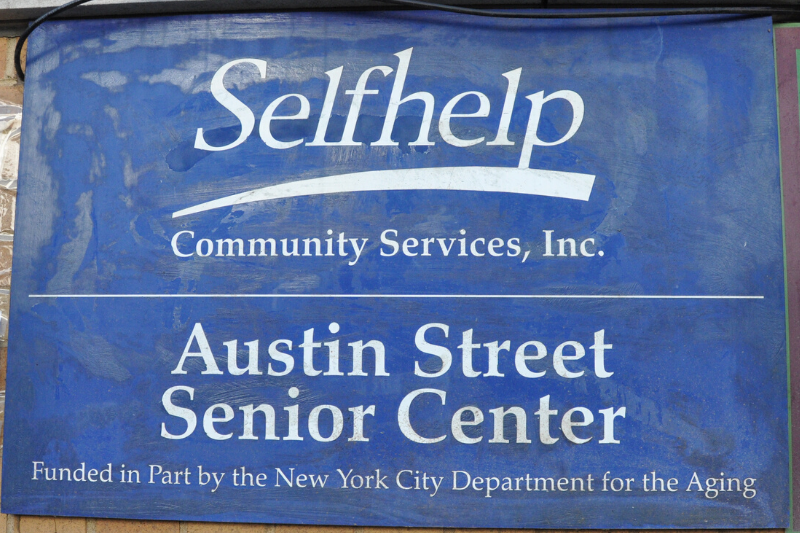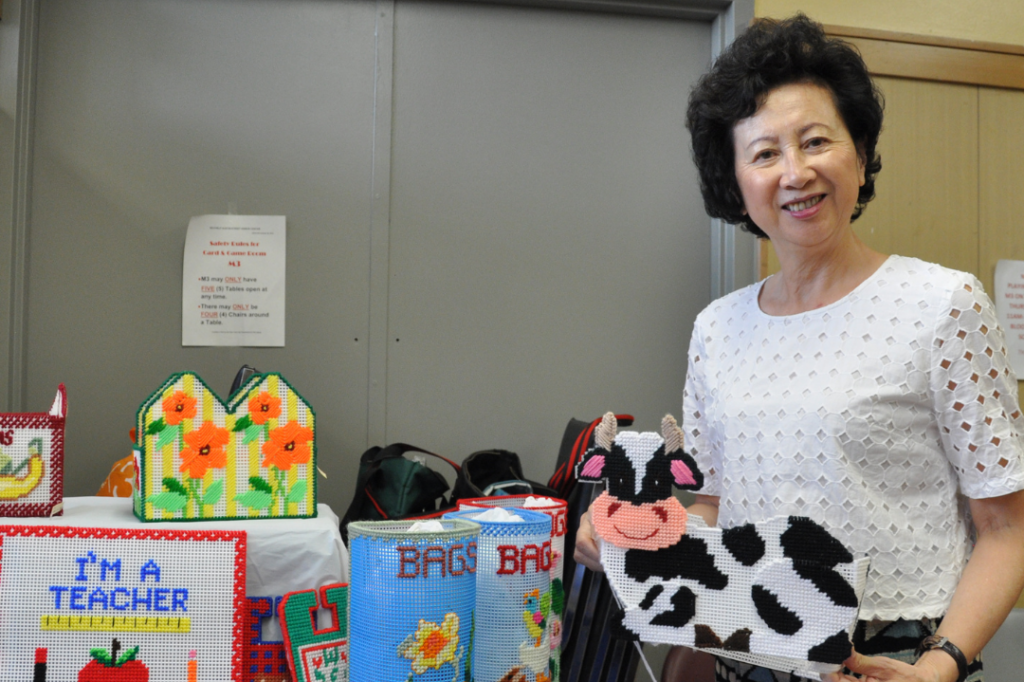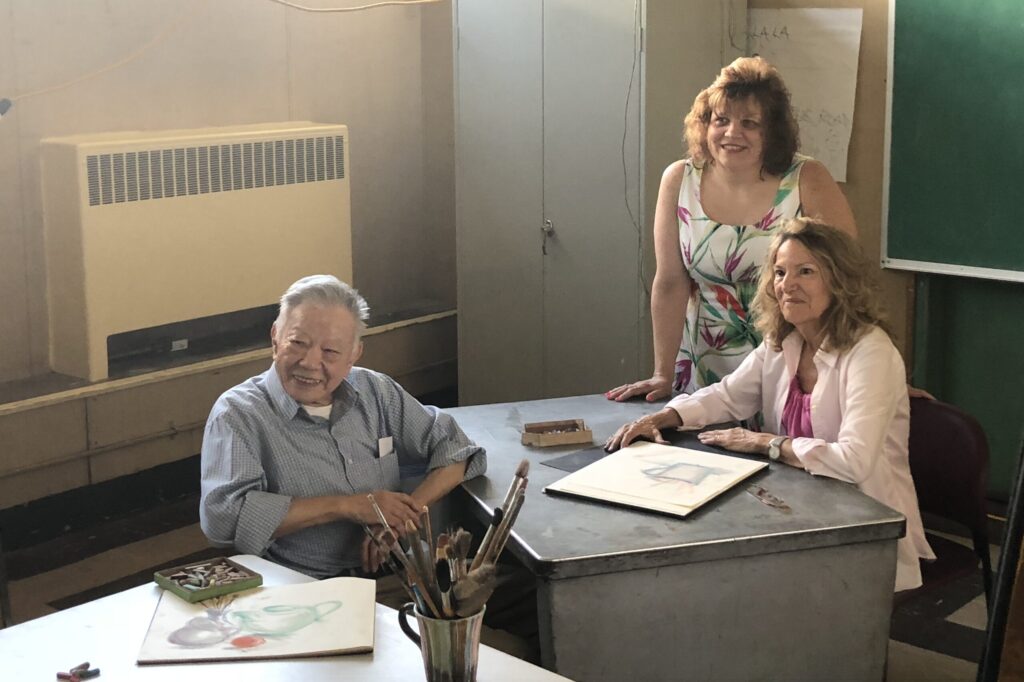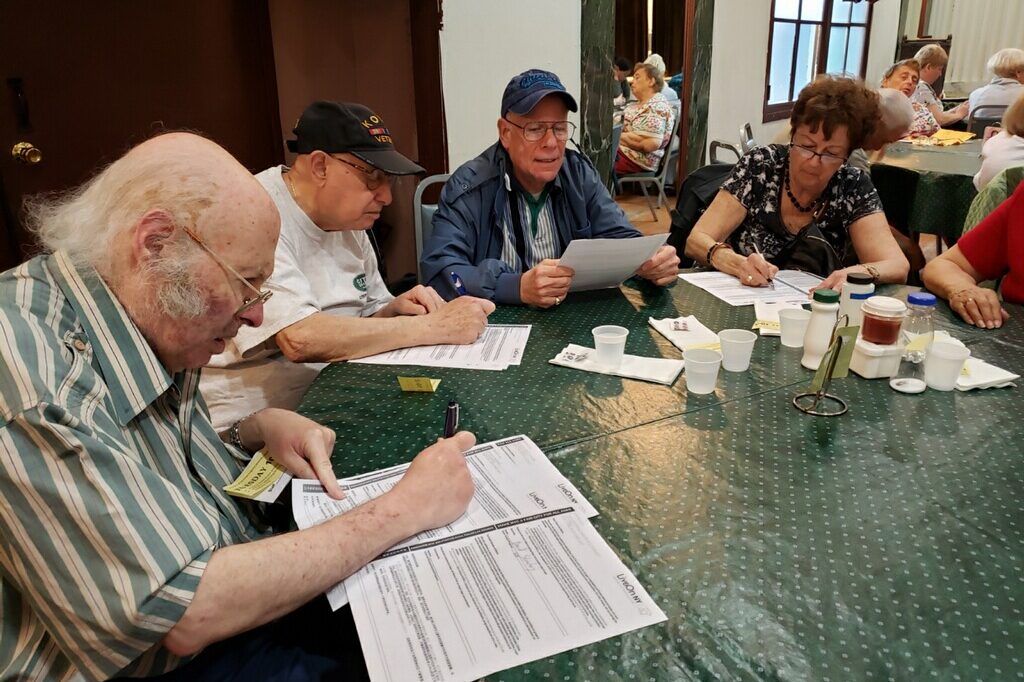About Us
Our unique approach is rooted in our longstanding work with Holocaust survivors, giving us the experience and understanding to meet every challenge. Because every person deserves to age with dignity and independence.
Today, we provide affordable housing, home care, and community-based services to more than 25,000 aging adults.
Our 89-year legacy caring for Holocaust survivors fuels how we serve every community today, with deep respect, cultural understanding, and enduring compassion.
OUR VALUES
Welcome and Include All
We appreciate and include the individual strengths of everyone in our community, meeting them where they are. Each person’s lived experience makes us stronger collaborators, and more attuned to other perspectives that ultimately help us better serve our mission.
Build Trust, Always
Trust is the foundation of all that we do. We approach each other, and our community, with integrity and honesty, furthering the reach of this trust with each action we take every day.
Think Big
We guard the independence of and enrich the quality of life for New Yorkers by thinking big. We leverage our time-tested expertise to boldly try new, innovative solutions that meet the ever-changing needs of our community.
Balance Head and Heart
We provide the highest quality care to our clients with time-tested efficiency and expertise, but we do so while holding the dignity of those we serve in the highest regard.
Connect with Compassion
We approach everyone in our community with empathy, respect, and compassion. We believe healthier communities are built on the care we give to each other.
OUR MISSION
Selfhelp is a not-for-profit organization dedicated to maintaining the independence and dignity of seniors and at-risk populations through a spectrum of housing, home health care, and social services and will lead in applying new methods and technologies to address changing needs of its community. Selfhelp will continue to serve as the “last surviving relative” to its historic constituency, victims of Nazi persecution.
Click the gold dots below to view our programs
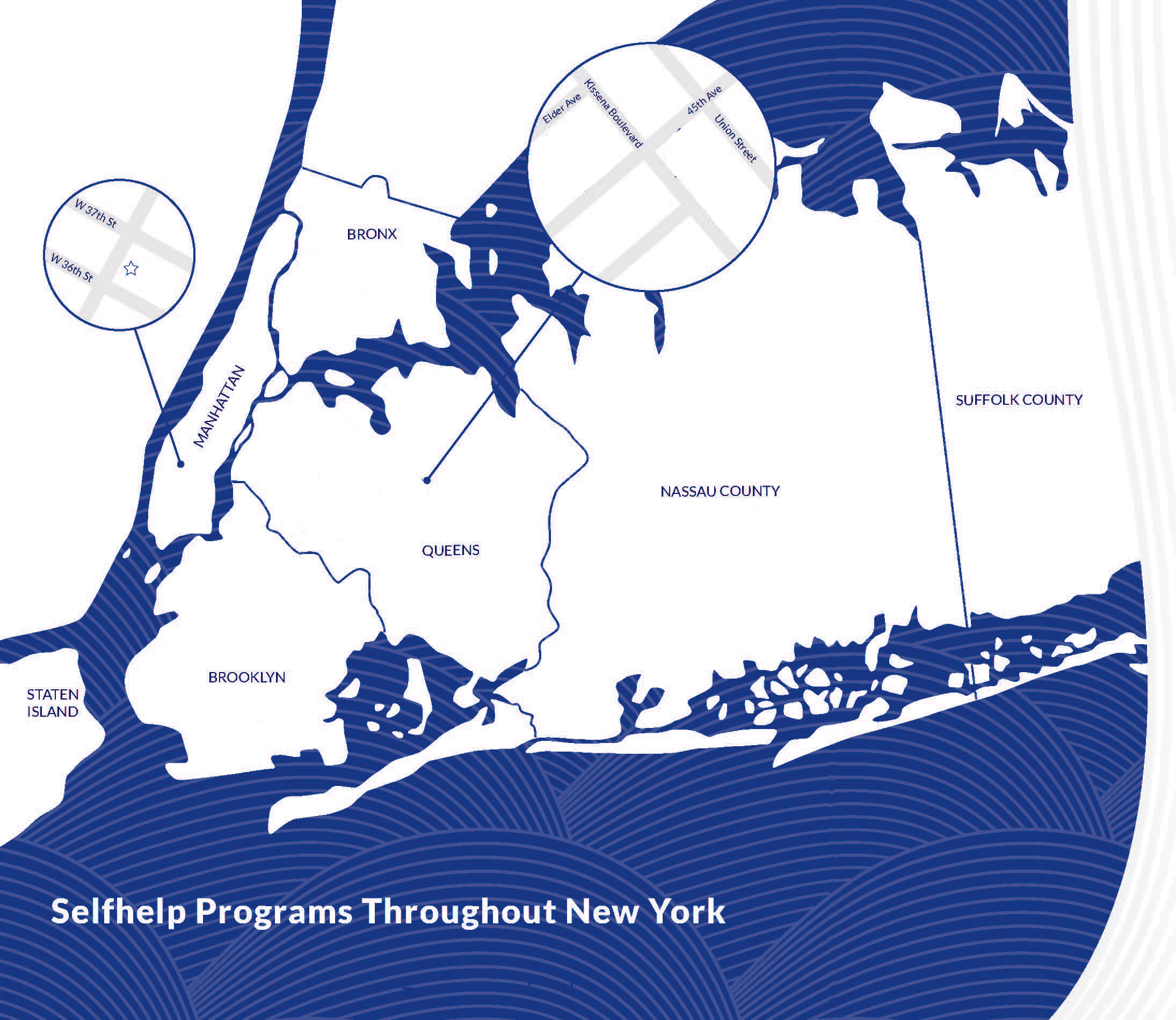
Selfhelp Headquarters
Adult Protective Services
Community Guardianship
Home Care
Home Care Training
Virtual Senior Center
Adult Protective Services
Community Guardianship
Holocaust Survivor Programs
Home Care
Home Care Training
Selfhelp Housing in Development
Selfhelp Housing with Services
Social Services Onsite
Virtual Senior Center
Adult Protective Services
Case Management
Community Guardianship
Holocaust Survivor Programs
Home Care
Home Care Training
NORCs
NY Connects
Older Adult Centers
Selfhelp Housing in Development
Selfhelp Housing with Services
Virtual Senior Center
Case Management
NY Connects
Older Adult Centers
Selfhelp Housing in Development
Selfhelp Housing with Services
Adult Protective Services
Case Management
Community Guardianship
Holocaust Survivor Programs
Home Care
Home Care Training
NORCs
Older Adult Centers
Selfhelp Housing with Services
Social Services Onsite
Virtual Senior Center
Adult Protective Services
Community Guardianship
Selfhelp Housing with Services
Virtual Senior Center
Holocaust Survivor Programs
Home Care
Home Care Training
Selfhelp Housing with Services
Virtual Senior Center
Selfhelp Housing with Services
Virtual Senior Center
OUR HISTORY
Selfhelp for German Refugees was founded on November 10, 1936, by a small group of German emigres who wanted to support immigrants who, like them, were arriving in New York City having fled Nazi-occupied Europe.
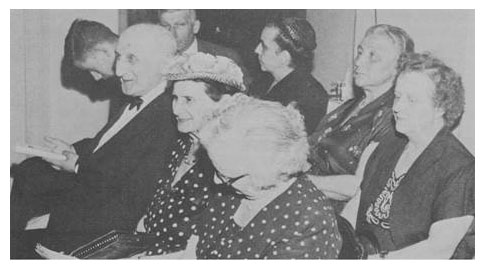
During WWII, Selfhelp focused on helping European refugees find work, housing, and community. Early job training programs caring for the elderly lead to the formation of Selfhelp’s Homemaker and Home Nursing programs, the precursors of our Home Care Aide Training.
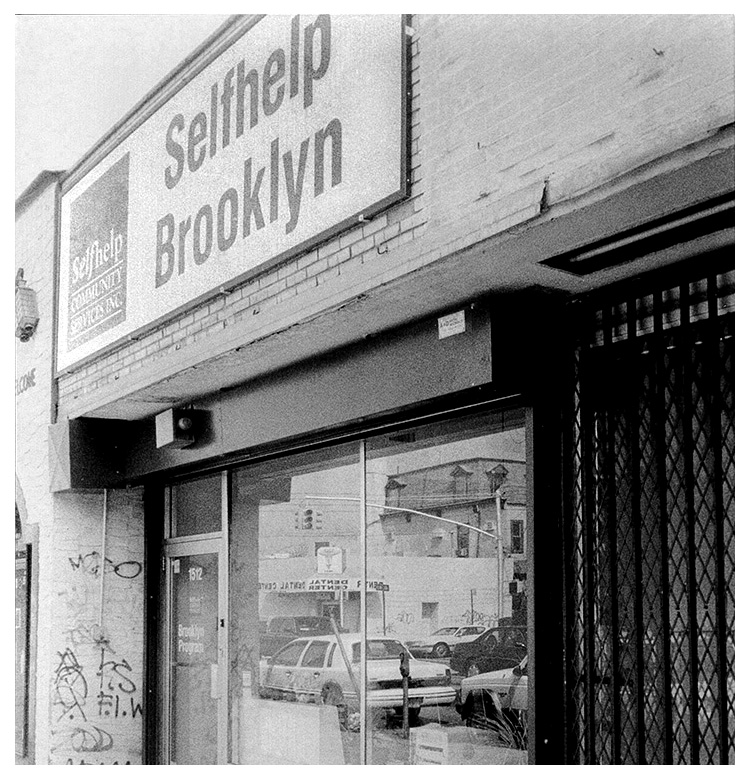
Through the latter half of the 20th century, Selfhelp quickly expanded to provide affordable housing and home care services for older New Yorkers from all communities.
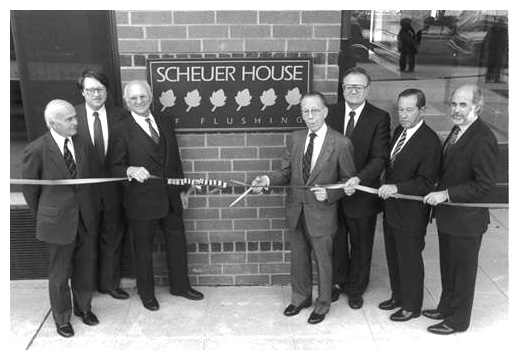
1964: Selfhelp built its first apartment building in Flushing, Queens, which housed 200 Holocaust survivors in the first state aided project to be built in New York by a non-profit organization with on-site social services.
1969: after several name changes, our leadership landed on Selfhelp Community Services, Inc. to reflect the organization’s comprehensive network of community-based services.
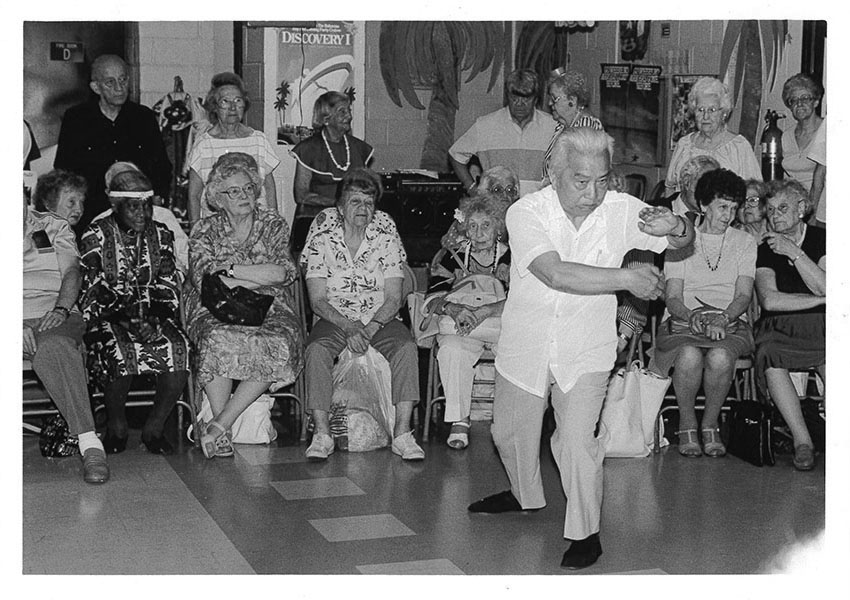
Programs were expanded to reach new Holocaust survivors in Washington Heights and Queens as well as Selfhelp’s first senior center in Queens. In the later years there would be additional offices serving survivors in Brooklyn, Nassau County, and the Bronx and 4 additional Selfhelp senior centers would open in Queens.
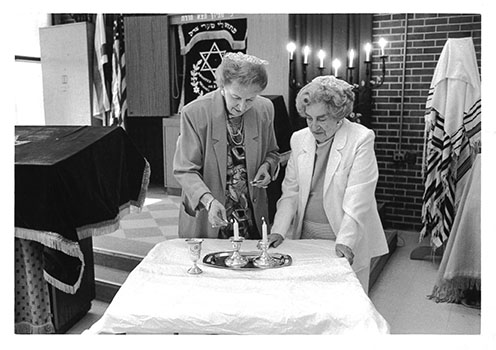
Our Holocaust survivor program significantly expanded, supporting Russian-Speaking Holocaust survivors, in Brooklyn.
The HIV/AIDS epidemic reached New York, largely affecting marginalized populations, including gay men, intravenous drug users, and Black and Latino Americans. Selfhelp’s expert home care services expanded to care for people with HIV/AIDS, supporting them through AIDS-related complications.
1983: Selfhelp became a member agency of UJA-Federation of New York, enabling us to undertake new and exciting program initiatives.
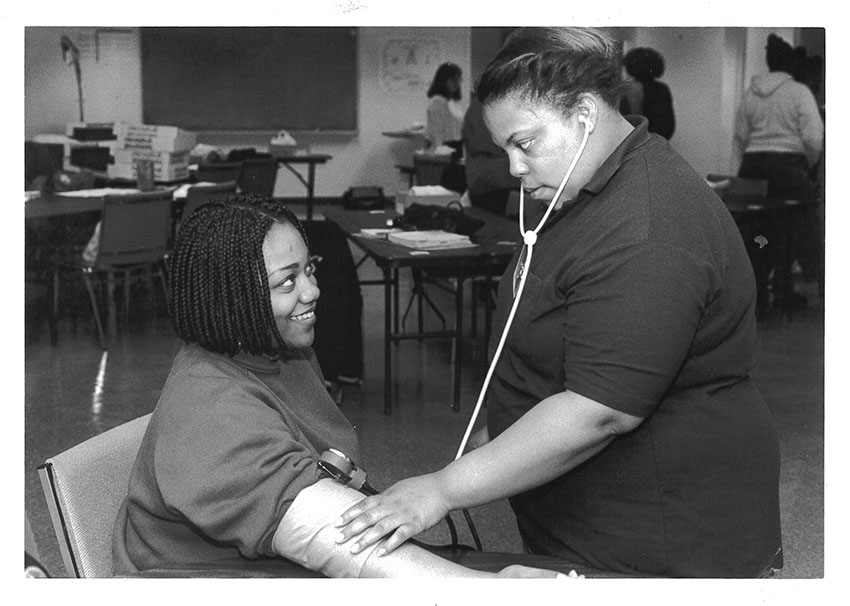
Selfhelp establishes Naturally Occurring Retirement Communities (NORCs), positioning us as a leader in human services.
1993: The Conference on Jewish Material Claims Against Germany provided funding and over time, the Claims Conference became Selfhelp’s most significant funder of our Holocaust survivor program, making additional vital services possible.
1995: Selfhelp established a Certified Home Health Agency to provide a full spectrum of home care services to individuals and families affected by HIV/AIDS.
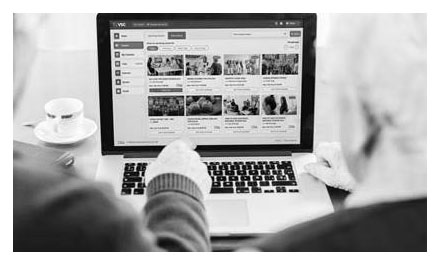
2002: continuing our building boom of the 70s, 80s and 90s, the Harry and Jeanette Weinberg Apartments, our sixth residence, is opened in Flushing.
2003: Senior Source, a new private-pay geriatric care management program is initiated.
2005: aging services technology, including Computer Learning Centers, sensor technology, telehealth and brain fitness programs are introduced in our residences and among our home care clients.
2008: the Selfhelp Community Services Foundation is founded to raise, manage and steward philanthropic funds to support the work of Selfhelp Community Services. Toward this end, Project Legacy, an ambitious initiative is launched to secure funding for the last generation of Holocaust survivors. Selfhelp opens its second Brooklyn site in Kensington to provide much-needed services to the growing number of Holocaust survivors requesting assistance.
2009: Selfhelp publishes “Sixty-Five Years after Liberation: Holocaust Survivors in New York Today through 2025,” a demographic analysis of the existing population of Holocaust survivors in New York. The study projects the numbers and needs of survivors through the year 2025.
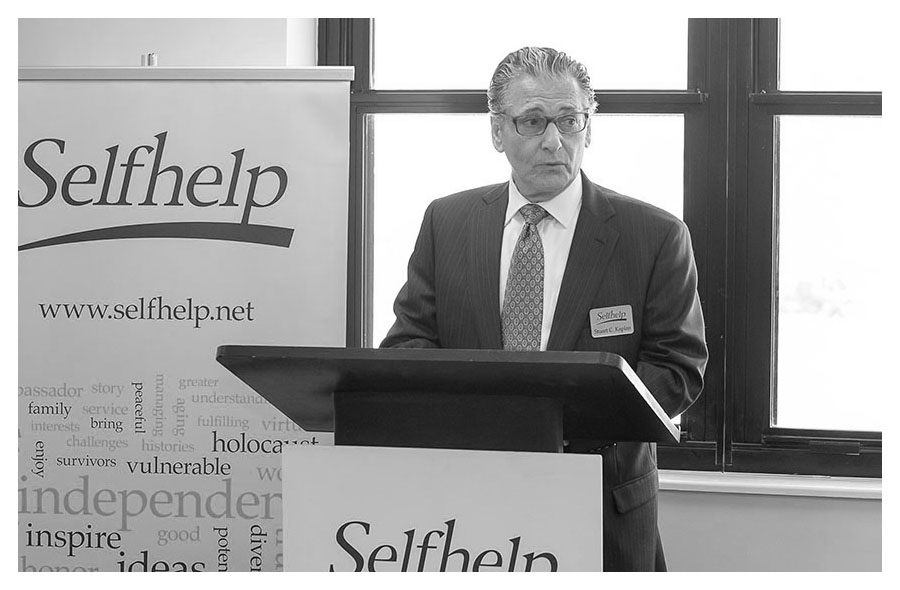
2010: Selfhelp launches its internationally acclaimed Virtual Senior Center in collaboration with Microsoft, the NYC Department for the Aging and the NYC Department of Information Technology & Telecommunications. This transformational program now serves 275 seniors in six locations.
2011: Selfhelp commemorates its 75th year of service. Among the many events held was Selfhelp’s Fourth International Conference for Professionals Working with Holocaust Survivors.
2012: Selfhelp brings Witness Theater to New York, partnering with the Yeshivah of Flatbush High School. An innovative and emotional, full-year “journey” for Holocaust survivors and high school students, Witness Theater began in Israel by JDC-Eshel. Today five schools are participating with 11 performances and a live internet stream.
2013: in collaboration with UJA-Federation and the Defiant Requiem Foundation, Selfhelp participated in bringing The Defiant Requiem–Verdi at Terezín to Lincoln Center to raise funds and awareness for New York’s Holocaust survivors in need. So successful was this event, that an encore performance took place in March, 2015. Selfhelp expands its affordable housing portfolio to Long Island through an affiliation with the Kimmel Housing Development Foundation. Two affordable housing developments, as well as three Selfhelp programs are housed at the Westbury site.
2014: Selfhelp opens its seventh affordable housing residence, featuring innovative aging services technology, a recreational green roof and an on-site health and wellness facility.
2015: unprecedented new funding from the NY City Council and the Federal Government is awarded to support the needs of Holocaust survivors. Selfhelp is a primary beneficiary. Selfhelp’s Housing with Services model is internationally recognized. CEO Stuart C. Kaplan addresses the International Association of Homes and Services for the Aging’s International Conference in Australia.
2016: Selfhelp marks its 80th year of service by opening its tenth affordable housing residence, hosting two professional conferences, and forming a Chinese Advisory Council to raise awareness of our programs serving Chinese elders. As the largest provider of comprehensive services to Holocaust survivors in North America, we remain true to our mission of serving as “the last surviving relative to our historic constituency.” Our broad spectrum of programs now serves 20,000 older adults throughout New York City and Nassau County.
2017: A year-long project, to collect clients’ stories of living in World War II’s Shanghai Ghetto, culminates in a remarkable evening where Holocaust survivors and Chinese clients come together. We complete a research study demonstrating that clients in affordable housing spend less time in the hospital than people of similar ages in the same zip codes. Armed with this and other evidence, we begin exploring relationships with healthcare partners, and obtain state funding to develop a new technology infrastructure that can demonstrate the impact of our services on client health.
2018: Selfhelp’s broad spectrum of programs now serves more than 25,000 older adults throughout New York City and Nassau County. Our eleventh affordable housing residence opens in Brooklyn. Five more new construction projects are in the pipeline, including two in collaboration with noted architect Daniel Liebeskind. The award-winning filmmaker Oren Rudavsky is completing a year-long documentary of Witness Theater. We receive state funding for a major expansion of our training program for home health aides.
OUR LEADERSHIP



